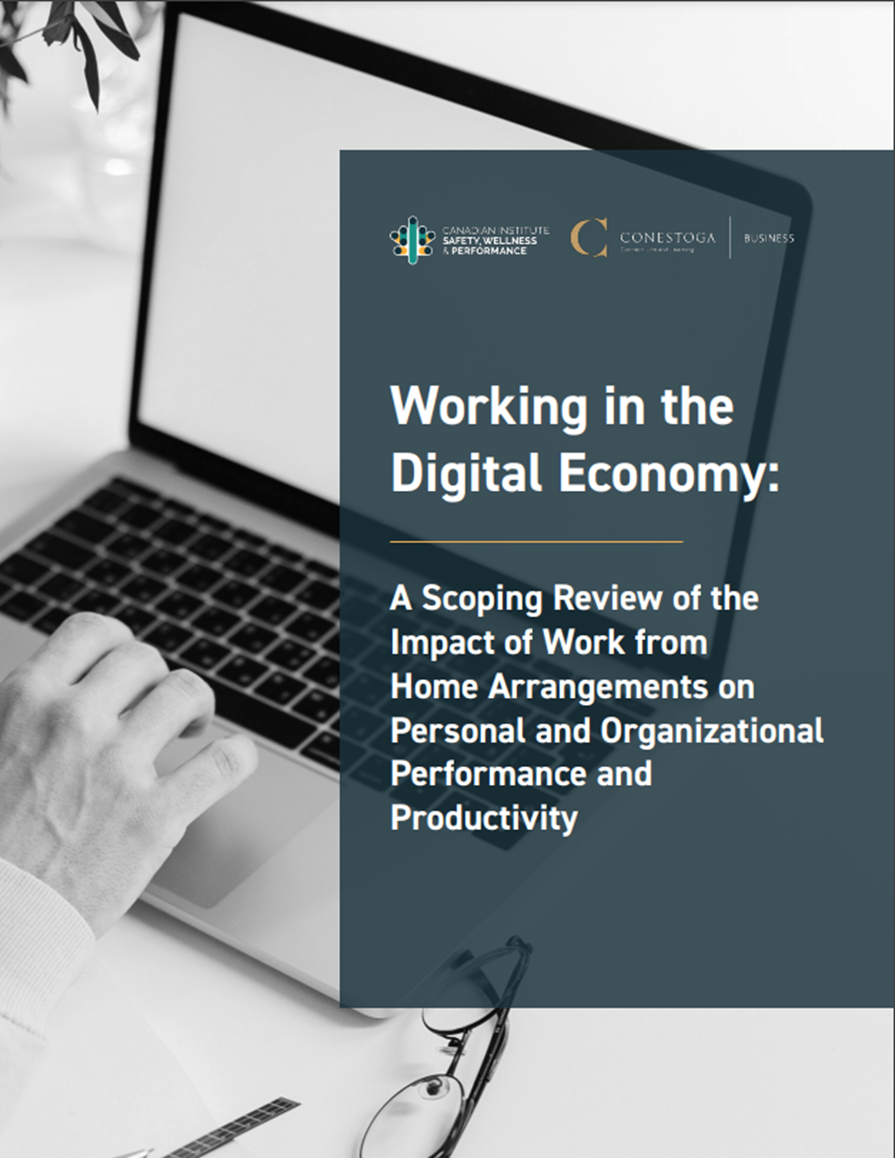Working in the Digital Economy: A Scoping Review of the Impact from Home Arrangements on Personal and Organizational Performance and Productivity

Background
Work-from-home (WFH) has become an increasingly adopted practice across the globe. Given the emergence of the COVID-19 pandemic, WFH arrangements have risen substantially in an extremely short amount of time. WFH has been associated with several physical and mental health outcomes, however these health and safety issues often receive little resources and attention from a business and managerial perspective compared to organizational and worker performance and productivity. Therefore, aligning WFH practices and strategies with business goals of organizations may help catalyze awareness from decision makers and serve to effectively implement WFH policies.
Objective
We conducted a scoping review to synthesize current knowledge on the impact of WFH arrangements on personal and organizational performance and productivity.
Methodology
Through a two-step screening process, we selected and extracted data from 37 relevant articles from a search of four databases that yielded 3,402 articles. Key search terms included terminology surrounding two core concepts: WFH and productivity and performance.
Results
The findings from this scoping review suggest that WFH can have positive impacts on personal and organizational productivity and performance, however these positive impacts are likely related to non-mandatory arrangements. When WFH becomes mandatory and full-time in nature, or external factors (such as the COVID-19 pandemic) are at play, the overall impacts are less positive and can be detrimental. Further, evaluation of the effectiveness of a WFH arrangement vary greatly in terms of the measurement tools used and the types of questions asked. The lack of consistency will make it difficult for organizations to infer conclusive results as to the impacts of WFH and highlights the need for organizational policies to define what productivity and performance means to them, and what measurements are best suited to reflect these impacts.
Key Messages:
The results of this scoping review will help foster a broader understanding of the impact of WFH arrangements on personal and organizational productivity and performance, help inform the development of recommendations of organizational strategies to prepare employers to create an effective, resilient, and inclusive WFH workplace, and serve as a means to effectively implement WFH policies when aligned with business goals of the organization.

